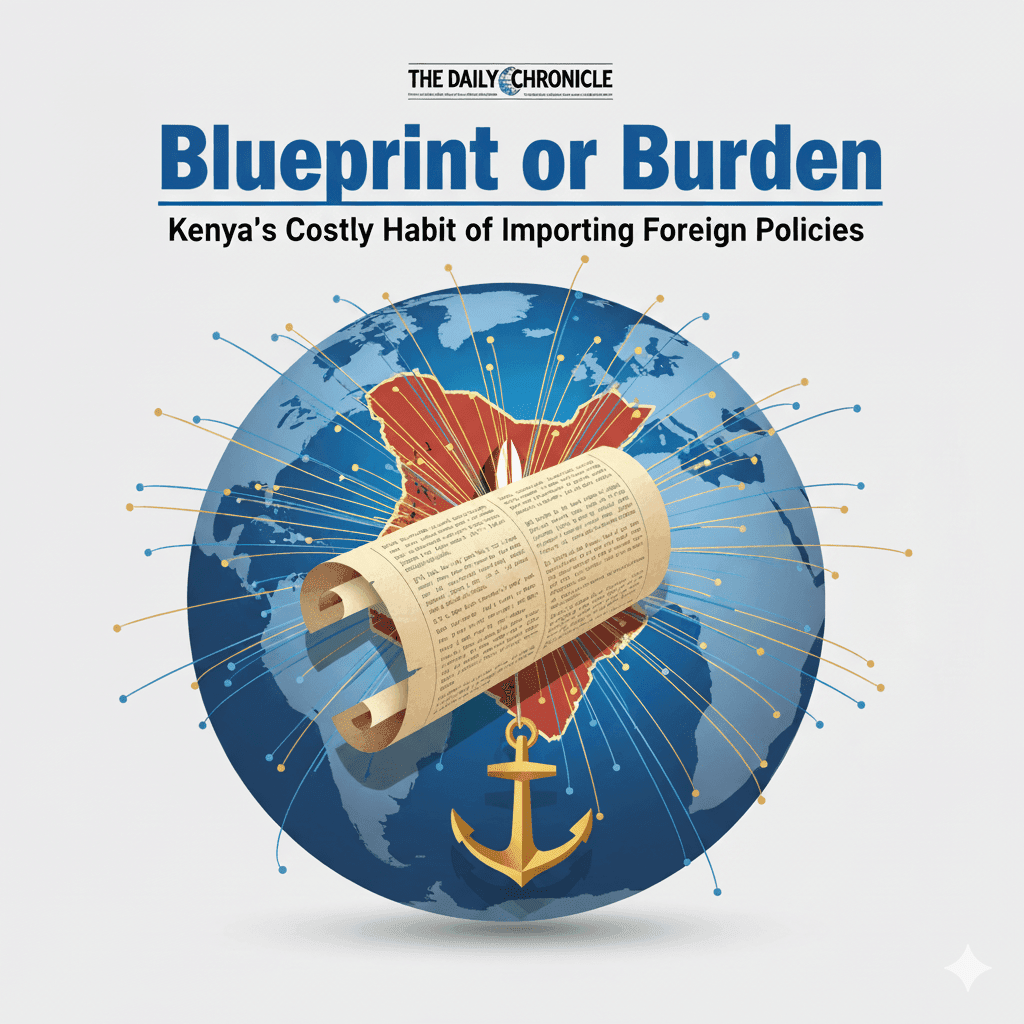We're loading the full news article for you. This includes the article content, images, author information, and related articles.
From classrooms to clinics, the uncritical adoption of foreign policy models is failing to address Kenya's unique challenges. This investigation explores the deep-seated reliance on external blueprints and the growing call for homegrown solutions to secure the nation's future.

NAIROBI, Tuesday, November 18, 2025 (EAT) – Kenya's development strategy, from its ambitious Vision 2030 to the daily realities of its healthcare and education sectors, is deeply intertwined with policies and frameworks developed far beyond its borders. For decades, a reliance on international blueprints, often tied to donor funding and loans from institutions like the International Monetary Fund (IMF) and the World Bank, has shaped the nation's trajectory. While intended to foster growth and stability, a growing body of evidence and expert opinion suggests this 'cut-and-paste' approach often ignores local contexts, stifles domestic innovation, and, in some cases, exacerbates the very problems it aims to solve.
This long-standing practice of policy importation is not merely an academic debate; it has tangible consequences for everyday Kenyans. It influences the curriculum taught to children, the healthcare services available in rural clinics, and the economic pressures faced by small-scale farmers and entrepreneurs.
The roots of this dependency run deep, most notably to the Structural Adjustment Programmes (SAPs) initiated by the IMF and World Bank in the 1980s and 1990s. Faced with economic decline, Kenya, like many African nations, implemented these reforms, which mandated widespread privatization, reduced government spending on social services, and liberalized trade. The consequences were severe and long-lasting. These programmes have been linked to rising income inequality, inflation, unemployment, and a decline in living standards. The reduction in government expenditure particularly weakened the education and health sectors, leading to the introduction of cost-sharing policies that made essential services unaffordable for many poor families.
Critics argue that the SAPs represented a significant loss of economic sovereignty, with external institutions effectively dictating domestic policy. This historical precedent established a pattern of conditionalities that continues to influence policy-making today, where loans and development aid are often contingent on adopting specific, externally-devised reforms.
A more recent example of policy importation is the Competency-Based Curriculum (CBC), introduced to reform Kenya's education system. The CBC model, which emphasizes learner competencies over content acquisition, draws heavily from international educational trends. While proponents argue it fosters critical thinking and problem-solving skills, its implementation has been fraught with challenges directly linked to its foreign origins. Critics point to a significant gap between the curriculum's design and the realities of the Kenyan context, citing inadequate teacher training, a severe lack of resources like digital devices, and insufficient stakeholder sensitization as major hurdles. The result is a reform that, despite its noble intentions, has struggled to achieve its objectives, placing immense pressure on teachers, parents, and students.
Kenya's health sector offers another stark illustration of the challenges posed by external influence. The country faces significant donor dependency, particularly for critical programs addressing HIV/AIDS, tuberculosis, and malaria. In 2017, four donors accounted for nearly 90% of all health aid. This reliance creates vulnerabilities, as a sudden halt in funding can threaten essential services. Furthermore, donor priorities often dictate the health agenda, leading to a focus on specific diseases rather than comprehensive health system strengthening. In a July 2024 parliamentary session, Kenyan MPs raised concerns that donor partners foster over-dependence to advance their own interests, hindering the nation's path to self-reliance in healthcare.
Amid these challenges, there is a growing and powerful call for a paradigm shift towards 'homegrown' policies—solutions designed in Africa, for Africans. This movement is championed by continental bodies like the African Union through its Agenda 2063, a strategic framework for transforming the continent that emphasizes self-determination, regional integration, and people-driven development. The agenda explicitly calls for respecting the sovereignty of African countries and fostering policy space for nations to devise strategies that fit their unique circumstances.
Successful examples from across the continent demonstrate the potential of this approach. Rwanda's use of the traditional 'Gacaca' justice system for post-genocide reconciliation and its 'Girinka' (one cow per poor family) program are celebrated as innovative, culturally-rooted solutions to complex national problems. These initiatives have been credited with fostering social cohesion, reducing poverty, and building self-reliance.
In Kenya, institutions like the Kenya Institute for Public Policy Research and Analysis (KIPPRA) are mandated to provide quality, evidence-based policy advice to the government, serving as a crucial resource for developing locally relevant strategies. The ultimate goal is not isolationism, but a move from uncritical adoption to critical adaptation—where international best practices are evaluated, questioned, and tailored to fit the specific economic, social, and cultural landscape of Kenya and the broader East African region.
As Kenya navigates the complexities of global economic pressures and its own development goals under Vision 2030, the debate over policy ownership is more critical than ever. Forging a path that prioritizes local context and empowers domestic expertise will be the defining challenge in transforming blueprints into genuine, sustainable progress for all Kenyans.
Keep the conversation in one place—threads here stay linked to the story and in the forums.
Sign in to start a discussion
Start a conversation about this story and keep it linked here.
Other hot threads
E-sports and Gaming Community in Kenya
Active 9 months ago
The Role of Technology in Modern Agriculture (AgriTech)
Active 9 months ago
Popular Recreational Activities Across Counties
Active 9 months ago
Investing in Youth Sports Development Programs
Active 9 months ago